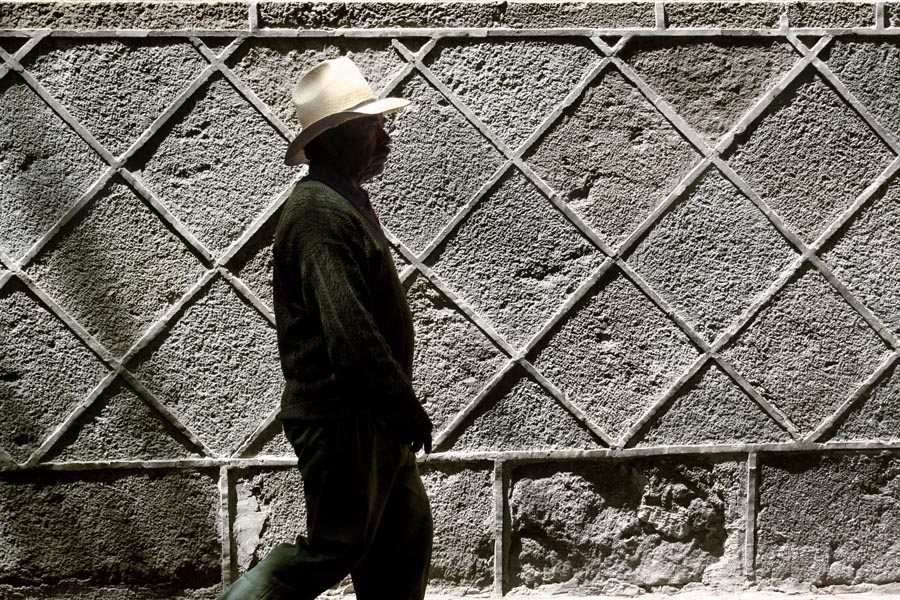Basically saying “¡No más!” to foreign seed companies, on October 13, Mexico’s Supreme Court authorized a court order banning genetically modified corn seeds. The court reasoned that such orders are precautionary measures needed to protect biodiversity from irreparable damage caused by genetically modified organisms (GMOs). News of the ruling was met with widespread approval from the public, suggesting there is some hope for sustainable farming across in Mexico.
Gritos (cries) tell Mexico’s history far better than history books do. They illustrate how Mexicans challenge global forces. In the 1800s, imperial powers exploited new colonies worldwide for sugar. One local consequence was the widespread taking of ejidos (communal farmlands) in Morelos and other Mexican states. Tired of this, Emiliano Zapata, born and raised in Morelos, cried “¡Tierra y libertad!” demanding land and, more important, liberty for campesinos, something only enjoyed by the wealthy hacendados (plantation owners) and their foreign investors.
In 1994, fed up with neoliberal myths, the shout came from the new Zapatistas in Chiapas, “¡Todos somos Marcos!” signaling that Mexicans were sick of corruption. Since 2013, the cry “Sin maíz no hay país” (“Without corn there is no nation”) expresses the demand to ban maíz transgénico, or GMO corn. This represents a sprouting force, deep in Mexico, whose growing stalks spark fear in biotech, agrochemical, and American foreign policy interests, all of whom worry about their global reach and additional bans on the GMO seeds they push.
As with tipping points throughout Mexican history, recent developments contain the seeds of hope to resist foreign powers. Current opposition regards how corporations and biotechnology shape agriculture policies and profit from laws that favor them. It’s not just Mexican farmers who fight neoliberal policies; examples include the demonstrations in India since August 2020 and farmer and Indigenous protests during last month’s UN global food summit. Such movements share an understanding that state agricultural policies favor corporations, usually foreign-owned, at the expense of farmers, peasants, and consumers. Rural communities and disenfranchised socioeconomic classes pay the actual costs of “market prices,” “free trade,” and “privatizations,” with elites insulated and profits trickling cross-border.
Will this change? If Mexican history teaches us anything, it is that sometimes sustained protests force governments to apply laws and policies to address rural grievances or at least stop ignoring them so leaders can win elections. One way to view the Colectividad del Maíz ruling is that the Mexican government does listen to farmer and consumer demands and uses its legal powers to protect maíz nativo, or native non-GMO corn. It serves as an example for similar struggles worldwide. Let’s call it guarded but hopeful optimism that relies on precaution.
Positive changes came about before. Zapata and other revolutionaries fought for over a decade. Rural insecurity only ended when leaders addressed the motivations for violence. Years later, Article 27 of the Constitution was applied to protect ejidos. This was far from perfect and didn’t really reform land ownership, but it ended the legal ease with which foreign investors and hacendados used to capitalize on their economic power.
Kathryn Greenman describes how alien rights law, protecting foreign investors, presented a massive thorn in the side of leaders during the Mexican Revolution. Foreigners demanded and got legal privileges for their economic benefit in the name of liberalism. Only after popular grievances reminded leaders of the actual contents of the newly enacted Constitution did alien protections lessen. Article 27 on land reform and Article 123 on labor rights were firsts for progressive constitutional rights. They inspired constitutionalists, labor, and leftists globally. As strife spread with the fallout of World War I, with workers mobilizing and rural persons migrating to urban slums, Mexico showed how protests, or even violent struggle if need be, could force change in agricultural policies.
An optimistic view of Colectividad del Maíz is that it stops neoliberal corn, organically boosts agricultural policies, and offers an example for similar struggles worldwide. GMO farming exemplifies neoliberal practices; it protects seed company ownership of farming practices with intellectual property (IP) protections, by controlling seed use and by banning seed saving. Corporations prescribe how to farm while charging for seeds. And these companies acquire more legal protections with “trade-in” IP and investor rights in treaties like NAFTA or its update, the USMCA. Emphasizing ownership of seed practices, not goods, the words “hecho neoliberal” (neoliberal made) could be stamped on bags of seeds.
Mexico’s current legal resistance to GMOs rises from the Precautionary Principle, a legal principle recognizing that countries can stop approving technologies if their safety is scientifically uncertain. The ruling in Colectividad del Maíz employs precautionary measures, citing this legal principle. Domestic and international laws affirm these powers with Precautionary Principle provisions in Mexico’s 2005 biosecurity law and treaties covering GMOs, biodiversity, and the environment. These powers are no surprise. Agrochemical companies and biotechnology interests backed the biosecurity law, so much so that many call it “La Ley Monsanto” (the Monsanto law).
Unfortunately, GMO proponents forget this and depict these measures as unscientific. This ignores a plethora of scientific studies showing that GMO corn compromises biodiversity and that these risks are irreparable (see this, this, this, this, this, this, and this). Moreover, there is no scientific consensus on GMO safety. In Colectividad del Maíz, seed companies refused to provide evidence that GMO corn is safe. GMO proponents offered scientific justifications so weak or misrepresented that observers and native corn advocates call them “falsa ciencia“ (fake science). GMO voices seem to ignore what does not suit them, whether it is national law, international treaties, legal developments, or simply pure science.
In political terms, it is sad. The Mexican Supreme Court merely exercises its independent constitutional authority, a basic lesson on the separation of powers in government. Complaints about Colectividad del Maíz run contrary to neoliberal demands for independent courts. A standard gripe of foreign investors is that courts are not independent. But when it comes to GMO corn, it seems courts must also agree with pro-GMO science and not be too independent.
In an ideal world, the momentum from Colectividad del Maíz would strengthen domestic policies. Already Mexico has begun to support agroecological methods, less toxic, in a transition to farming without GMOs and toxic glyphosate. This year México initiated a plan to phase out all GMO corn, not just seeds and glyphosate, by 2024. GMO advocates still plant losing arguments, saying the movement away from GMO is not based in science.
Al grano (to the point, but literally “to the grain”), GMO corn runs the risk of the title character in Carlos Fuentes’s seminal novel, The Death of Artemio Cruz, in which a former revolutionary soldier dies rich while confronting his own legacy of exploitation and corruption. Maybe maíz transgénico will face a similar death, but before that happens we should plant new laws and policies.
Like farmers expecting a good harvest, with bags of optimism and a handful of precaution, we can look for a shift and listen to the Indigenous, campesino and consumer communities who pay for and die from the excesses of neoliberal farming.
***
Ernesto Hernández-López is a professor of law at Chapman University’s Fowler School of Law. He writes about international law, food law, and Mexican history. Twitter: @ProfeErnesto1






[…] Read more @ https://www.latinorebels.com […]